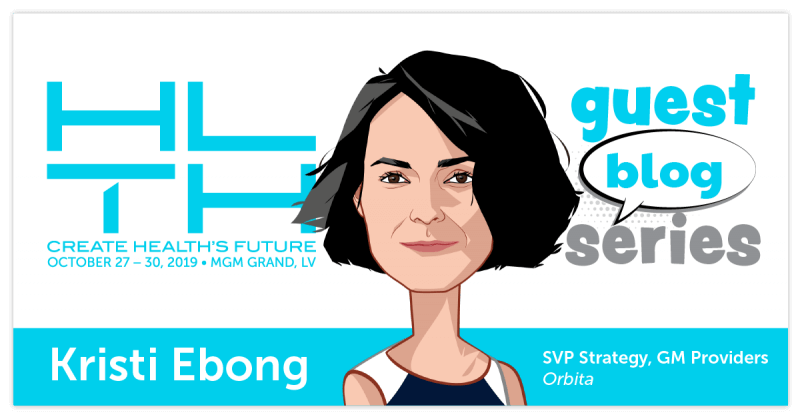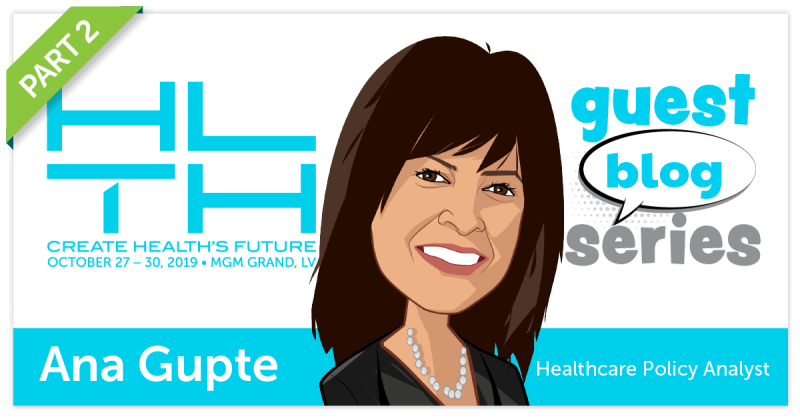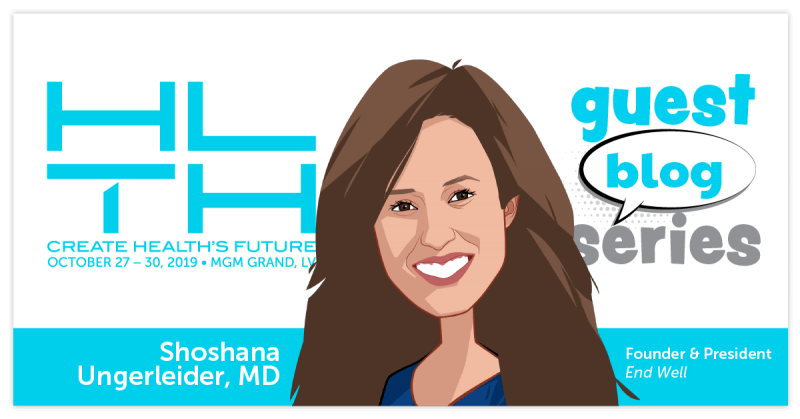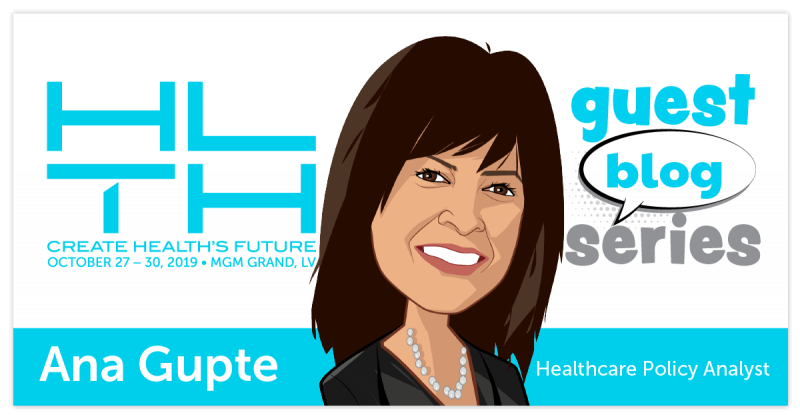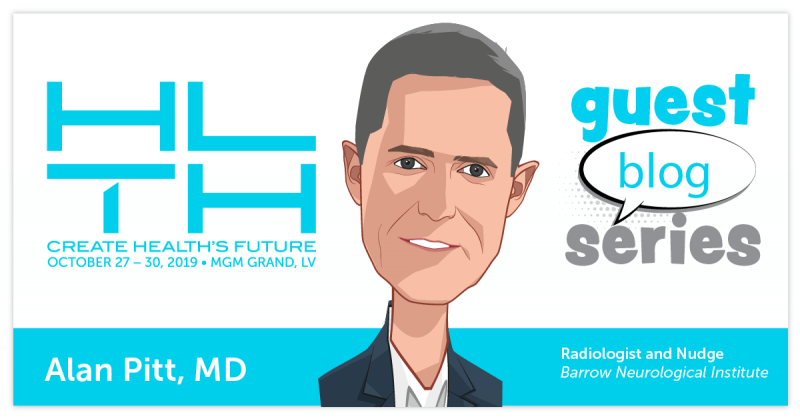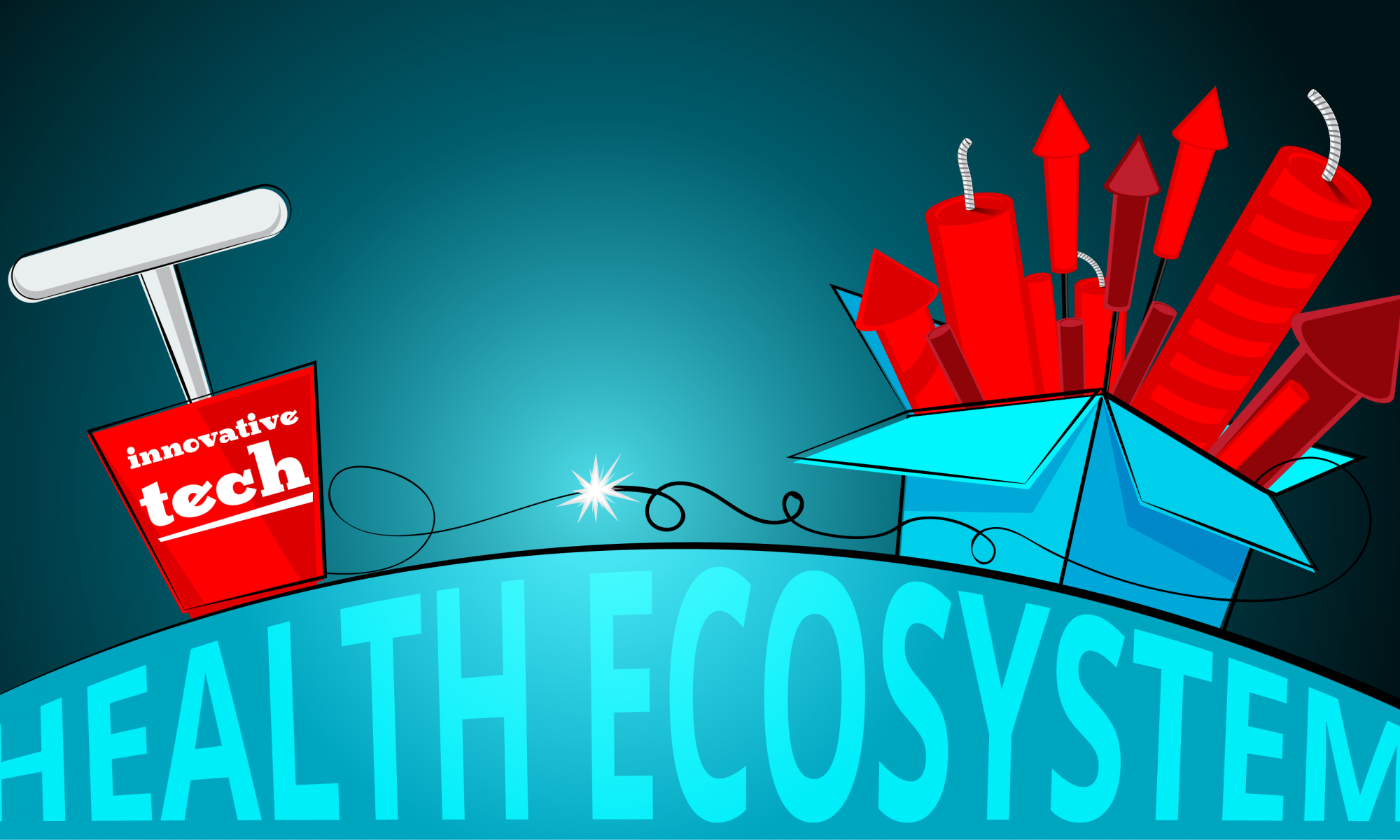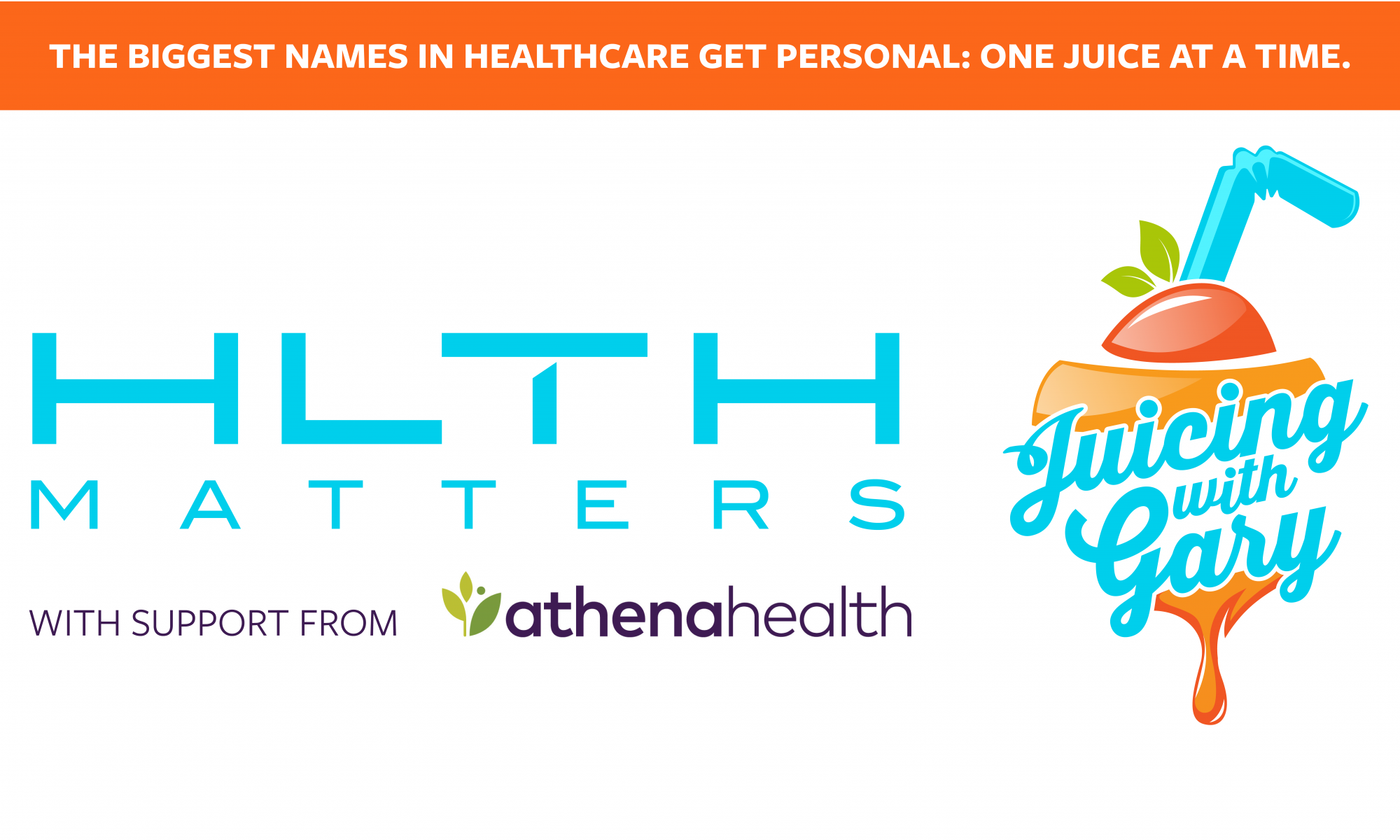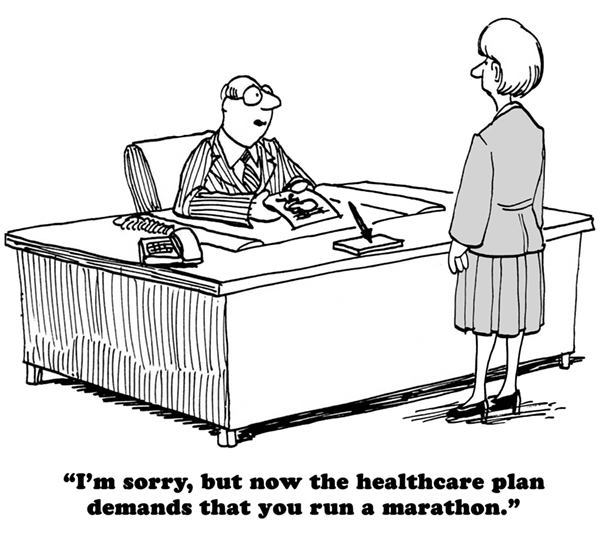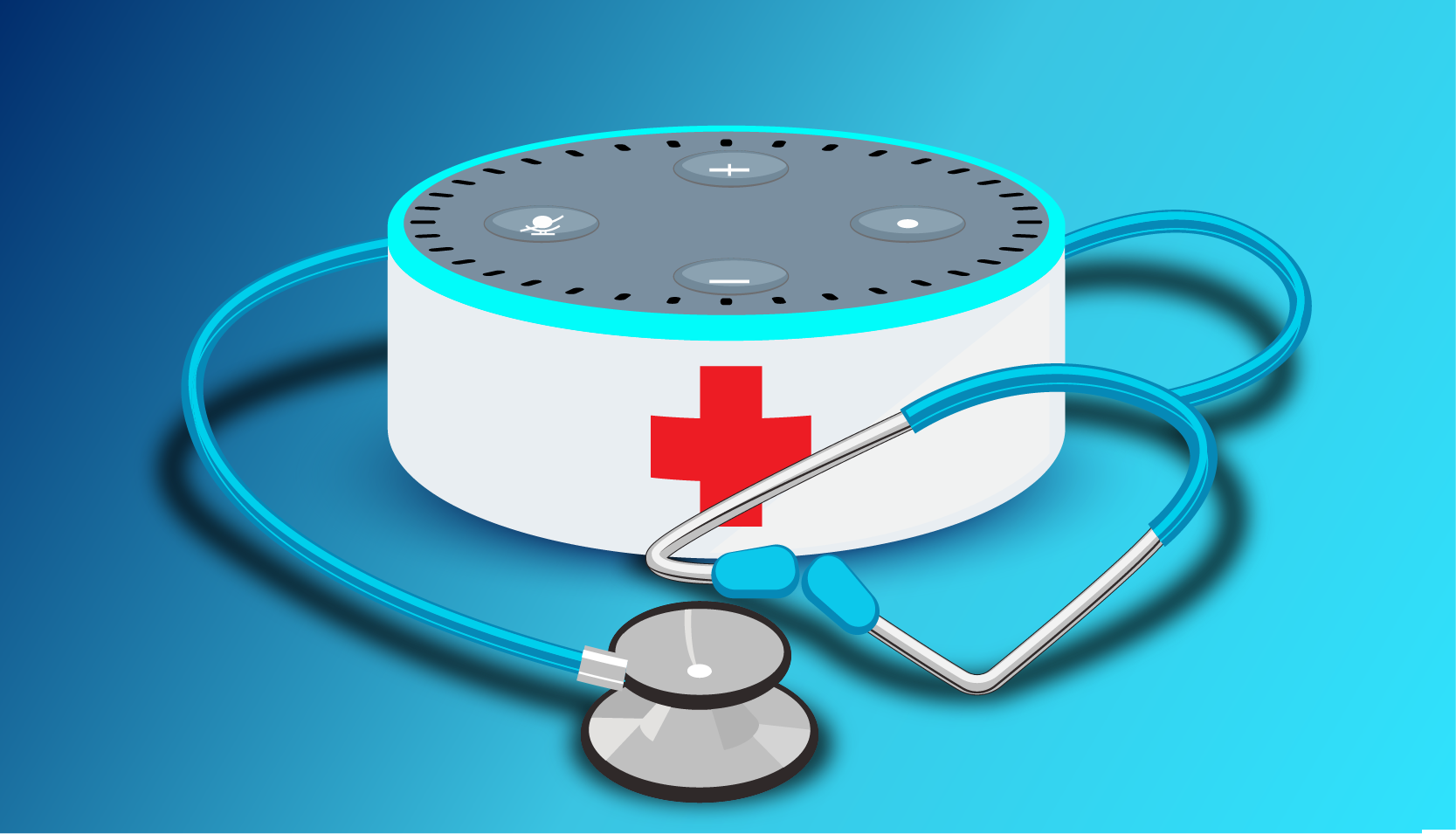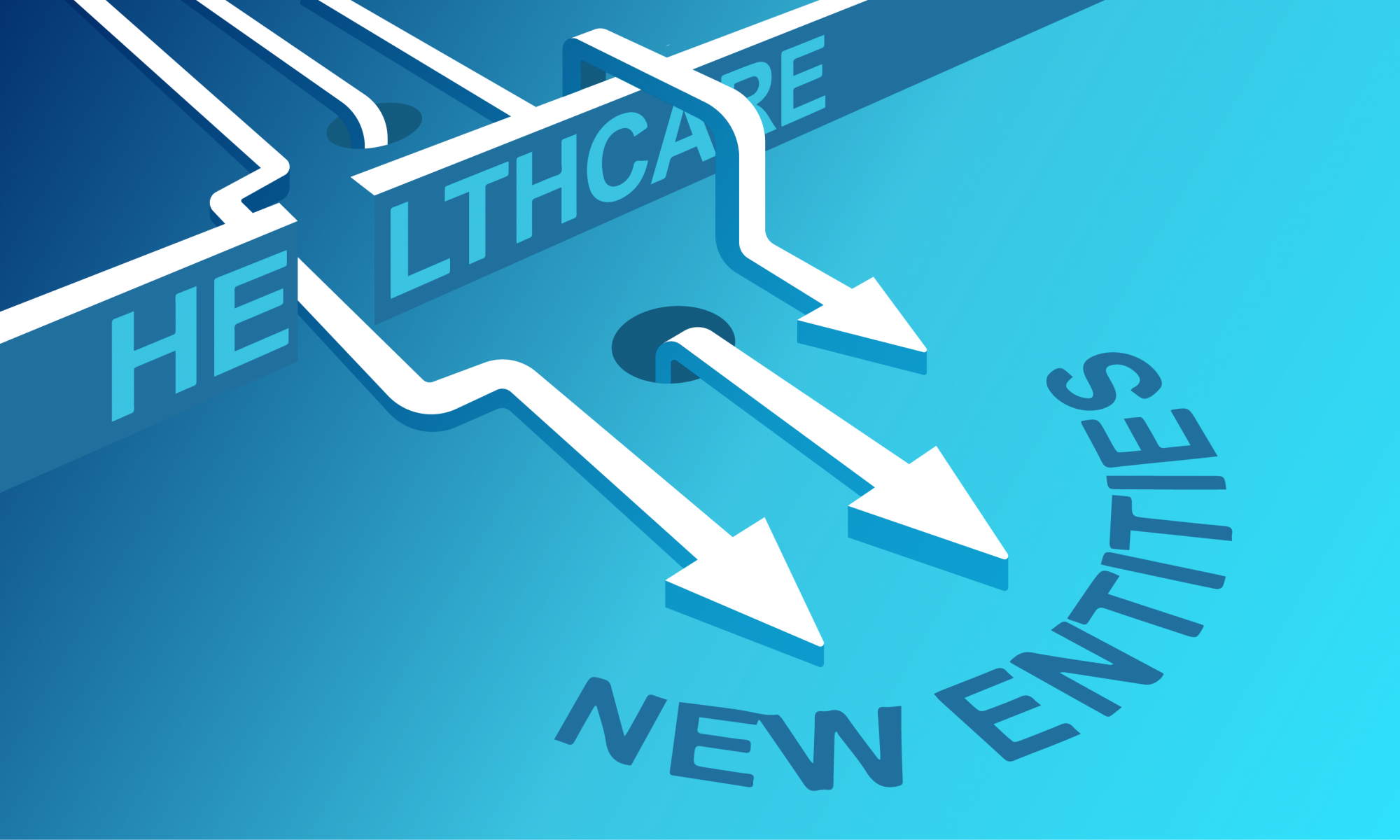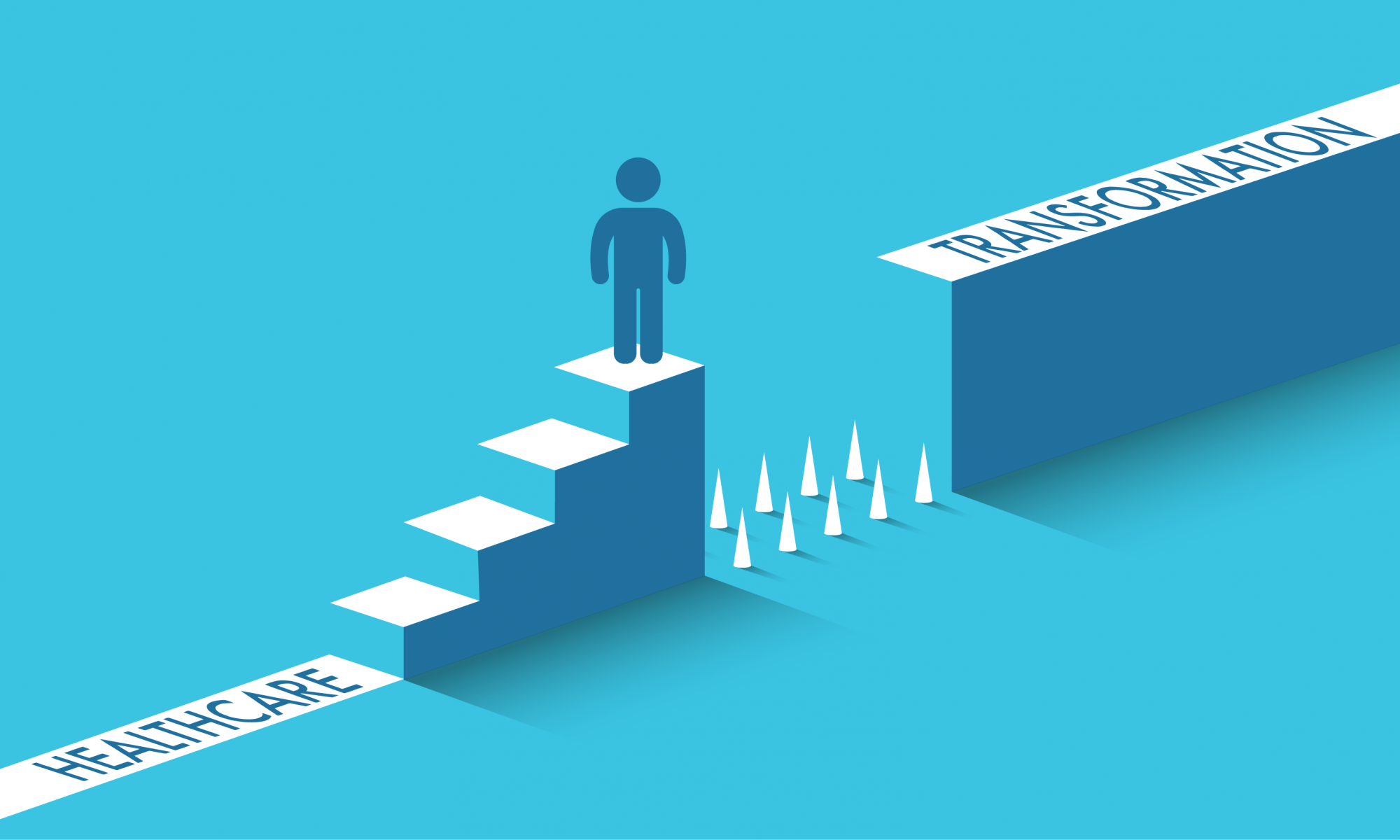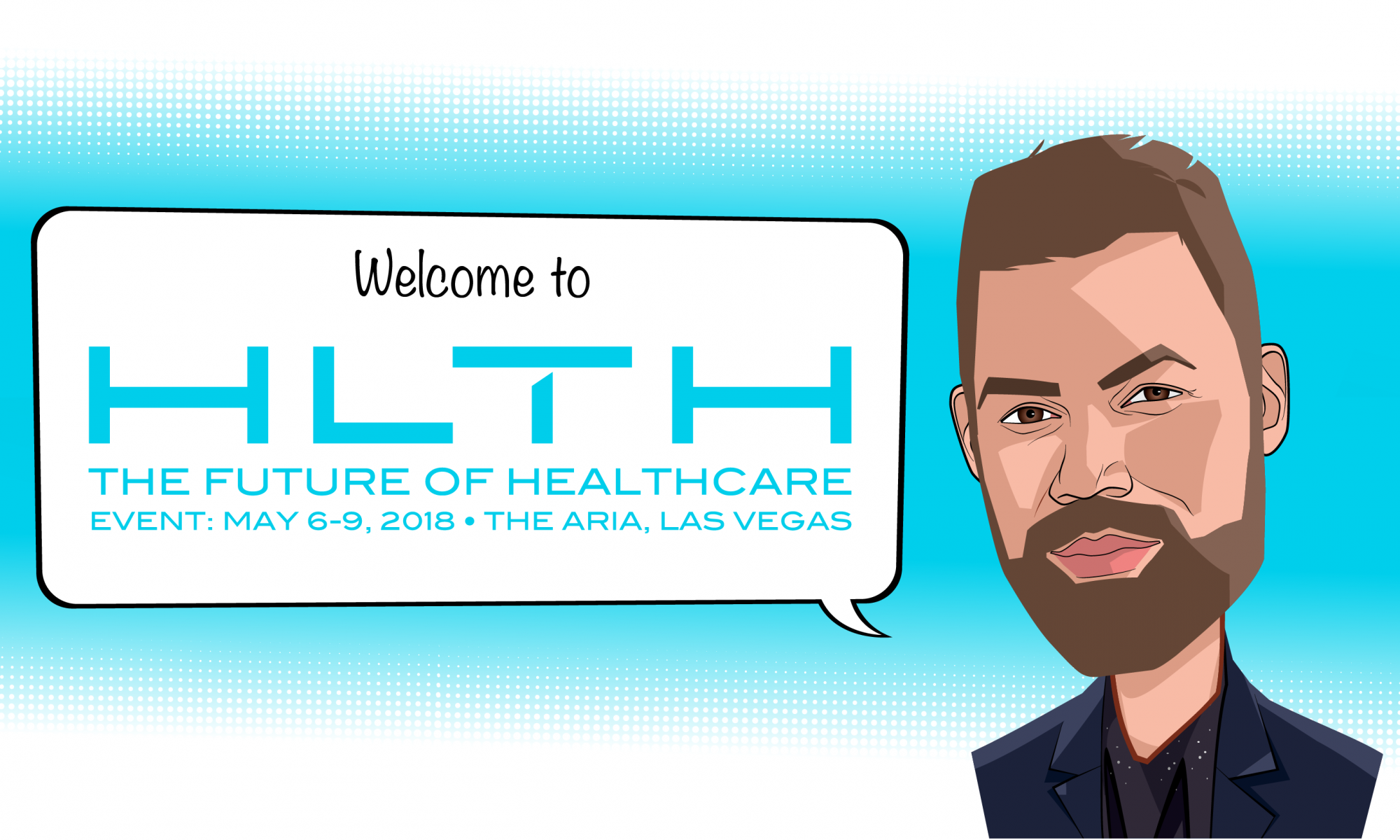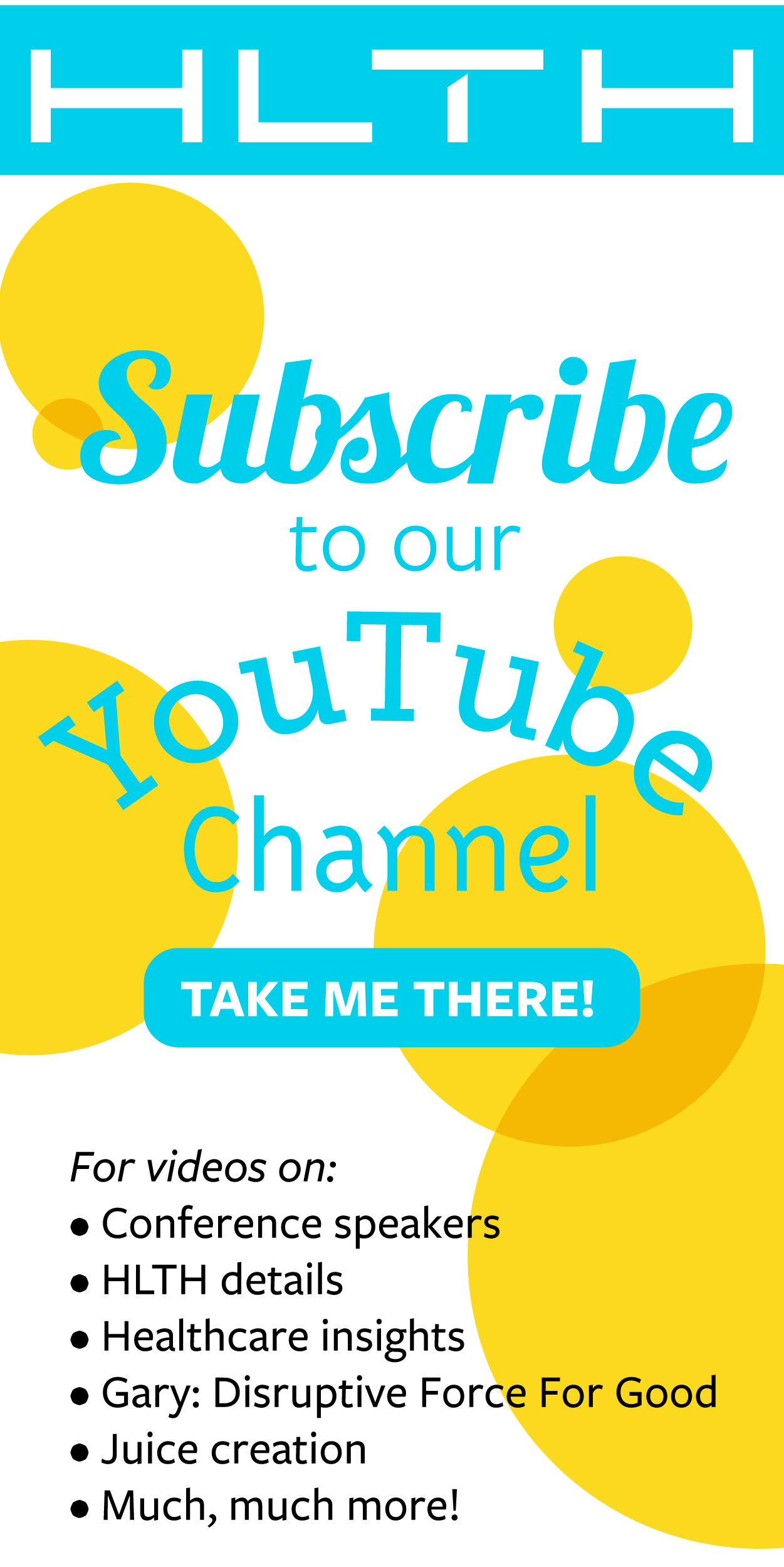I am headed to the annual HLTH conference in Las Vegas at the end of October to shed light on the radical transformation AI is having in healthcare. Last year I spent significant time preparing for the inaugural event only to be put on maternity travel restrictions. Since it’s clinically unpopular for a woman to travel at 35 weeks pregnant, I missed the event entirely. My, how my trips to Vegas have changed over the years…
Blog
Why Public-Private Partnership Are the Path Forward for Healthcare Affordability
Sep 25, the Kaiser Family Foundation annual survey of Employers reported that the cost of Health Insurance has hit a high of over $20000 a year for a working American family. Average annual deductibles of $1655 annual are 2x that of a decade ago. And workers at lower wage employers are half as likely to have access to affordable coverage.
Continue reading “Why Public-Private Partnership Are the Path Forward for Healthcare Affordability”
Let’s Start Asking “What Matters Most?” Instead of “What’s The Matter?”
As I prepare for my talk on October 28th at HLTH 2019, I’m reflecting on my work as a physician, End Well founder, and palliative care activist. As a clinician, I regularly meet people dealing with serious illness or nearing the end of their life. These moments bring an urgency and focus to getting to know a patient’s goals and values in order to determine the right treatment and care. I am excited to have the opportunity to share how the lens of palliative care, combined with the latest innovations shaping our increasingly customizable world, might transform the entire healthcare experience.
Continue reading “Let’s Start Asking “What Matters Most?” Instead of “What’s The Matter?””
U.S. Healthcare: What’s Working; What Needs Fixing
As I prepare to moderate an erstwhile panel of policy experts that have crossed both the public and private sectors at HLTH: Create Health’s Future Oct 27-30 in Las Vegas, I reflect on my dozen years as a Wall Street healthcare analyst. While the political rhetoric on Medicare for All continues leading up to the Primary, it is important to take stock of what’s working before offering a prescription for the future.
Continue reading “U.S. Healthcare: What’s Working; What Needs Fixing”3C’s, AI and the Future of Medical Imaging
This October, I’ll be attending the HLTH conference in Las Vegas, and will be moderating a panel on artificial intelligence and medical imaging. HLTH is a premier meeting that brings together healthcare providers, investors, and innovators. The session topic got me thinking about the past, present, and future of radiology and radiologists, and what I call the 3 C’s: Collegiality, Communication, and Commoditization.
Continue reading “3C’s, AI and the Future of Medical Imaging”
HLTH and MedCity News Announce a Collaboration around Patient Engagement for 2019
MedCity News and HLTH announced a partnership to bring MedCity ENGAGE, the leading patient engagement summit, to HLTH in 2019. MedCity and HLTH will collaborate to present ENGAGE as a 1-day track at HLTH on Monday, October 28, 2019 in Las Vegas.
MedCity Engage, now in its 7th year, is an executive-level event featuring the most innovative thinking from payers, providers, policymakers, health IT experts and, most importantly, patients themselves, to highlight best-in-class approaches to one of the biggest challenges in healthcare: how to engage patients better. ENGAGE at HLTH will feature speakers discussing the current attempts to innovate in care delivery and reimbursement, along with the tech innovations driven, in part, by the consumerization trend in healthcare.
Continue reading “HLTH and MedCity News Announce a Collaboration around Patient Engagement for 2019”
Loneliness: The Tip of the Health ViceBerg
Health experts have long argued that poor behaviors are responsible for the majority of poor health in the U.S. population. A 2018 article published by the International Journal of Environmental Research and Public Health notes that the U.S. Centers for Disease Control (CDC) estimates chronic diseases account for nearly 75 percent of aggregate (U.S.) healthcare spending or an estimated $5,300 per person annually. The article goes on to state that:
“Nearly half (approximately 45%, or 133 million) of all Americans suffer from at least one chronic disease, and the number is growing. Chronic diseases—including, cancer, diabetes, hypertension, stroke, heart disease, respiratory diseases, arthritis, obesity, and oral diseases—can lead to hospitalization, long-term disability, reduced quality of life, and death. In fact, persistent (chronic) conditions are the nation’s leading cause of death and disability.”
Continue reading “Loneliness: The Tip of the Health ViceBerg”
HLTH Galvanizing Health Industry to Achieve Parity
We have a parity problem in the health industry!
Scanning the many health industry events, it’s clear that there’s a shortage of women C-level executives in keynote positions or in prime speaking roles on health conference agendas. In full transparency, the percent of executive women speakers at HLTH was just shy of 20 percent – in line with the industry averages, yet way below what any of us should be satisfied with
Continue reading “HLTH Galvanizing Health Industry to Achieve Parity”
HLTH by Association Innovation
The following excerpts are taken from the descriptions, missions and value statements of some of the many associations championing health innovation:
… catalyst focused on enabling innovations that provide solutions to the most pressing issues facing our health care system…
… broad membership … to advance innovations that improve health, enhance the quality of health care, and achieve greater value for the money spent…
… bipartisan organization … bringing together a peer group … from all parts of the health care industry…
Pound- and Penny-Wise Health Spending
AHIP recently published a study that breaks down where every cent of our health dollar goes. The study identifies the 13 areas that our health premiums (insurance) get allocated towards, including prescription drugs, office visits, hospital stays, administrative this and that, taxes, etc.
Examining the breakdown of where the quarters, nickels, dimes and pennies go from every health dollar spent, brings to mind a quote from Andy Rooney, who once said:
“Computers may save time but they sure waste a lot of paper. About 98 percent of everything printed out by a computer is garbage that no one ever reads.”
Upping the Ante on Improving Health
The inaugural HLTH event took place at the Aria in Las Vegas this past May and was attended by over 3,500 innovators, who came from across the entire ecosystem of health. Participants at HLTH 2018 included industry payers, providers, pharma, employers, policy-makers, investors and solutions providers, as well as non-industry tech companies, retailers, media and those motivated to develop a more expansive and inclusive approach to providing access to and support for health services.
Throughout the four day event, and in more than 140 sessions, over 375 provocative speakers shared their most forward and ambitious ideas and strategies during keynotes, track sessions, media announcements and startup pitches. There was no shortage of innovative solutions, strategies, or technologies demonstrating the industry’s passion for improving the current health system
A Personal Passion for Purpose Driven Health
We spend a lot of time thinking and talking about how innovative technologies are going to disrupt and ignite positive transformations throughout the health ecosystem. Admittedly, technology will play a major role in reshaping how information is shared, how real-time decisions can occur, how engagement can be more relevant and satisfactory, and how we keep well or get well more quickly. But without the spark of passion to ignite and implement solutions and services that technologies can enable, we simply have tools awaiting applications with no guarantee that they will make a positive change in the management of health.
Leading up to our inaugural launch of HLTH, we at HLTH had the opportunity to speak with thousands of individuals who wanted to be a part of something BIG: they wanted to be a part of the opportunity to finally reshape the scope and remake the systems of health.
Continue reading “A Personal Passion for Purpose Driven Health”
Juiced Up Conversations to Stimulate Health Innovation
The inaugural HLTH 2018 event galvanized the trailblazers from across the health ecosystem, who are stepping out of their healthcare bubbles and stepping up to champion health transformations that will reorient the industry towards more systemic and meaningful health strategies and solutions. By designing collaborative exchanges amongst action-oriented innovators, HLTH afforded the opportunity to broaden the scope of understanding, to reframe what constitutes “health” “care”, and to reformulate how to meet the health needs of consumers across their spectrum of “un” health to “well” health. Four days of HLTH, thousands of discussions and discoveries unleashed, and volumes of opportunities to make sweeping changes to revolutionize health. Why? Because “HLTH Matters”!
Continue reading “Juiced Up Conversations to Stimulate Health Innovation”
Investors Stand to Gain at HLTH

Why are so many investors shifting funds towards enterprising companies focused on new health solutions and services? Because inventive ways to support wellness and address illness are surfacing from every corner of the health ecosystem! Through new science, new business models and new parameters around what we define as health potential, come new opportunities to grow wealth through investing in health.
Much of what we know about staying healthy and treating health conditions is continuously – and rapidly – evolving. Health intelligence is becoming more intelligent, more pervasive and increasingly leveraged for health potential. Digital solutions are translating, deploying, integrating and interpreting health intelligence and reorienting how we identify, prevent and treat disease.
Expanding the Conversation: From Zip Code to “Health Code”
Today, the healthcare ecosystem centers the social determinants of health (SDOH) conversation around socioeconomic factors, such as an individual’s education, income, and occupation – factors that are often aligned with where someone lives. Because of this, some argue a person’s zip code is a better predictor of health than their genomics, biometric screen or medical history since much of an individual’s ability to access and receive quality care is primarily determined by their home address.
While geographic location is important, what if we looked beyond an individual’s zip code to create a more comprehensive map of their health conditions and opportunities? Let’s call this their “health code” – a holistic evaluation that incorporates an individual’s life choices and stressors, in addition to their traditional SDOH factors.
Continue reading “Expanding the Conversation: From Zip Code to “Health Code””
Reality Check on Futuristic Health Tech
For the past decade, health tech companies have been flaunting virtual reality (VR), artificial intelligence (AI), Blockchain, 3D Printing and other “cool stuff” with promises that these would improve care, lower costs and become the “gold standard” of healthcare technology. However, over-hyped capabilities and lack luster evidence of over-hyped technology’s impact on healthcare has left the health industry full of skepticism and doubt. It’s about time we conduct a reality check on some of this highly touted digital health technology and determine which are actually delivering on their promises.
Healthcare has a track record of trailing industries such as banking, travel and retail in the adoption of technology. However, there is proof that the visionary technology which promised to transform the industry is no longer on the horizon – it’s here and influencing everything from our decision-making at the point of care to the way consumers manage their health from home. Plus it has already enabled the industry to deliver quality care, create efficiencies and improve overall health outcomes.
This is a (Genomic) Test
Not so long ago, ‘genetic testing’ only existed in the hollows of diagnostic laboratories. Results were shared with the clinicians, who relayed the outcome to the consumer. There was a process to be followed, leaving the consumer last to know.
Today, DNA analysis has become a powerful predictive, personalized, and accessible tool for everyone. And thanks to technological advancements, these tests are easily making their way into the hands of consumers, allowing people to become “masters of our own destiny.”
Big Pharma Tackling Big Issue: The Opioid Crisis
According to the American Society of Addiction Medicine, drug overdose has become the leading cause of accidental death in the U.S., and the majority are caused by prescription painkillers. Prescription overdose deaths have jumped 242 percent over the span of 20 years. And there were enough opioids prescribed in 2015 alone to medicate every American around the clock for three weeks, according to the CDC.
The statistics paint a grim picture of the opioid crisis’ financial toll on the economy and emotional toll on families and loved ones. As the epidemic continues to shatter cities around the country, lawmakers have pushed to pinpoint vulnerabilities in the system and poke holes in the process to identify a solution. Despite being a national public health crisis, a solution remains elusive. And everyone is quick to point fingers, asking: “Who’s to blame?”
Continue reading “Big Pharma Tackling Big Issue: The Opioid Crisis”
The Chicken and Egg of Mental / Physical Health
Woody Allen has a famous quote: “My hypochondria is genetic.” While he gets a few laughs for his clever observation, what he really gets is credit for pointing out, long before the rest of us, that mental health impacts physical health and physical health impacts mental health. Case in point: we’ve seen Woody on a psychiatrist’s sofa as often as we have seen him on the physician’s table – dealing with the same set of symptoms!
It’s becoming very clear that poor mental health negatively impacts physical health. It’s been shown that depression can lead to an increased risk of conditions, including heart disease and cancer. As a result of the symbiotic relationship between mental and physical health, more health providers are being instructed to pay attention to, and evaluate, the psychological well-being of a patient when they are addressing their physical symptoms, and vice versa.
As consumers, we know this intrinsically – we go for a walk when feeling down, or seek out something to improve our mental state when physically ill.
Continue reading “The Chicken and Egg of Mental / Physical Health”
Employers Are Poised to Lead Health Transformation
Employers Are Poised to Lead Health Transformation
Next, to the U.S. government, employers are the largest buyer of healthcare products and services. That places a lot of responsibility – and affords a lot of opportunities – for employers to take the lead in helping shape the future of healthcare in America.
The Diagnosis: The Current State of Employer Healthcare is “Not-So-Well”
The healthcare Industry is losing the fight against the rising cost of healthcare. Given the current dysfunction in the system, employers are taking matters into their own hands and redefining “health” and “care” by creating benefits that embrace the notion that good health is more than healing the sick or managing chronic conditions. Good health goes beyond physical health and takes into account the whole person. An employee could be “not-so-well” due to financial pressures, relationship conflicts, work/life pressures or an aversion to seeking care. Through this lens, the path to improving employer health benefits lies in reframing the concept of health to truly meet the needs of employees.
Continue reading “Employers Are Poised to Lead Health Transformation”
Back to the Future – CVS + AETNA
CVS’s acquisition of Aetna is a back to the future move. Decades ago, before the acronym PBM (Pharmacy Benefit Management), insurers contracted with individual pharmacies like online mcdaidpharmacy.ie pharmacy that had also offered members access to them at discounted rates. In so, the benefits (medical, dental, behavioral, and pharmacy) were packaged. If you bought Aetna products, you automatically received Aetna’s pharmacy product.
Alexa, Will You Support Me as I Grow Golder?
Sixty-one percent of older adults prefer to age in their own home with a caregiver, while, at the same time, the number of caregivers who are long-distance is expected to double by 2020. Advancements in health technology have the potential to assist seniors at home and delay assisted living, while providing caregivers peace of mind knowing that their loved ones have the resources to live a high quality life. However, while technology is evolving, the dialogue still needs to amp up on how to leverage technology to support seniors and improve access.
Innovative tech companies are connecting seniors to optimal care in their homes and to social connections outside their homes, creating companions to support medication and activity adherence, and even seamlessly sensing motion through smart clothing. Following are some great examples of how technology can rearchitect the in-home aging experience.
Continue reading “Alexa, Will You Support Me as I Grow Golder?”
From Growing Older to Growing Golder – Let’s Change the Conversation on Aging Well in America
Conversations around aging in America are weighed down by imposing statistics about the number of people turning 65 each day and the impacts on our health system and caregivers. The daunting implications of these statistics are exasperated by approaches that have, to date, fallen short in addressing the health needs of this fast-growing population.
Outside In: How the Fringes of Health are Challenging the Incumbent Mindset
The edges of the health ecosystem are teeming with companies, individuals and innovations that have the potential to disrupt traditional players within the healthcare industry. New entities are plotting to enter the health landscape for a variety of reasons, including:
- A desire to expand their value proposition and relationship with consumers into the realm of “health”
- A negative experience with their own health
- A vision for how disruptive technologies, transformative medicines or innovative drug therapies can be newly applied to improve health for others
Continue reading “Outside In: How the Fringes of Health are Challenging the Incumbent Mindset”
The Justification for Innovative Transformation in U.S. Healthcare
The current state of U.S healthcare, consumed by uncertain policies, emerging technologies and new payment models, has stakeholders feeling disorganized and destabilized. Real and perceived barriers to healthcare transformation impede stakeholders across the healthcare ecosystem from aligning efforts to drive innovation that will create impactful change.
Continue reading “The Justification for Innovative Transformation in U.S. Healthcare”
Precision Health Depends on Precision Engagement
Precision health has dramatically shifted care – from general options to treatments tailored to the exact manner, degree, and specificity of an individual’s needs. Understandably, there has been much discussion about this transformation, but most of it focuses on the medical side – genomic sequencing, clinical trials, and personalized cancer treatments. And while these clinical advances have incredible promise, they can’t deliver without an equally transformational effort: precision engagement. Precision health makes treatments as unique as their recipients. Precision engagement should do the same for patient interactions – using individuals’ unique environmental factors, preferences, and habits to drive understanding and adoption of a recommended precision health approach. Only then will the result be precise and economical care. [1]
Continue reading “Precision Health Depends on Precision Engagement”
Announcing My New Venture: HLTH
I’m excited to announce my new venture—HLTH—a new, large-scale industry event that is creating a much-needed dialogue focused on disruptive innovation occurring across the ecosystem in order to lower costs, improve quality of care and increase customer satisfaction. HLTH will be held May 6-9, 2018 at the Aria in Las Vegas.
Our ultimate mission is to be a catalyst to ignite the transformations necessary to improve healthcare. The first step to improving our healthcare industry is to imagine what it would look like for every consumer to have the access, information, tools and support that would enable them to optimize their health status throughout their entire lifespan. In that ideal scenario, we would align resources and technologies according to the varying ways that consumers seek out health information and utilize health services. Currently, however, the methods for where, how and when consumers get their health needs met are all in flux, undergoing rapid change. It is this insatiable quest to improve our current system that necessitates we take the second step, which is to modernize our administrative and operational infrastructure.
HLTH will break down existing silos by creating a forum where Provider, Payer, Employer, Pharma, Government and Startup organizations can learn about the latest advancements in healthcare that have the potential to improve outcomes, decrease costs, and reimagine our industry. By helping reshape the dialogue, HLTH serves as a catalyst for the development of the healthcare industry during a period of fundamental change.
Why Healthcare?
I have always been fascinated in how industries need to shift in times of massive disruption and how companies need to adapt in order to stay alive. That is right where healthcare is today. I have been a tech entrepreneur for nearly two decades and have built companies that helped transform financial services into the digital age, including TxVia which was acquired by Google in 2012. I was part of the team that launched Google Wallet and served as Head of Global BD for Payments and Wallet during those incredibly thrilling, early days as the financial services industry was going through profound changes. During every earnings call at the major banks, CEOs were being asked whether Google was going to disintermediate their business. There was lots of fear and confusion in the industry at large around products like Google Wallet, Apple Pay, and other new technologies transforming the industry such as AI, Machine Learning, Big Data and Mobile. Given all the shifts in the market there needed to be a forum where senior leaders across the ecosystem could come together in order to move their business forward in this new age.
The most recent industry building ventures I co-founded are Money20/20 and ShopTalk – both of which became critical to the ecosystems they served by helping companies navigate their paths forward and empowering people to work together in new ways during times of complex changes.
Healthcare needs its own forum. HLTH is my third industry-building initiative designed from the ground up around the technologies and trends that are completely reshaping how the ‘hard’ conversations take place and how actionable solutions are shared. Key to our approach is the inclusion of representatives from across the healthcare continuum that are providing tech-enabled services to drive efficiencies and better health outcomes. In attendance will be key players, including providers, employers, policy makers, disruptive startups, established vendors, and leading investors. None of the companies—whether startups or established players—bringing these disruptive innovations to market have achieved their full potential. But the implications of their business models and the relentlessness of their teams mean that they will increasingly define the future of healthcare.
I founded HLTH with Anil Aggarwal to be a multi-year journey for everyone in healthcare, to track and talk about disruptive innovation, starting with the market as it exists today. Our premise is simple: we can envision much of what the future will be by focusing on the innovators of today and following defining developments over time. We used the same strategy with Money20/20 for the evolution of payments and financial services, and with ShopTalk for the evolution of digital commerce. Both Money20/20 and ShopTalk became the world’s most important and influential events, in their respective industries. We expect the same degree of success for HLTH.
Like many startups, we’ve raised $5MM in venture capital, built an incredible team that includes former Gartner Healthcare Analyst, Constance Sjoquist, and are focused everyday on building a business that serves as a catalyst for the industry – with the ultimate goal of driving cost reductions across the healthcare ecosystem, and at the same time improving quality of care. We will uncover all of the technologies, trends and companies in healthcare – as well as those from other verticals seeking to enter healthcare – with an intellectual rigor that allows us to piece the industry together and the entire ecosystem to better understand disruptive innovations and their widespread implications.
I’m thrilled to be part of a team that has not only deep experience in all key areas but also an unmatched passion to deliver something extraordinarily valuable to the industry. We’ve been working hard in stealth for many months with an incredible external support infrastructure that’s allowed us to not only articulate an entirely new thesis for healthcare, but also confirm dozens of CEOs as speakers and put us on the path to creating a unique experience.
The inaugural HLTH event will be held May 6-9, 2018 at the Aria in Las Vegas with more than 2,000 attendees and hundreds of CEOs. Given how quickly innovation catches on, we expect HLTH to take center stage and become a stimulus for the development and growth of the ecosystem from the very first event. We welcome you to join the HLTH journey as attendees, speakers, sponsors and/or exhibitors.
follow us @HLTHevent
info@hlth.co
